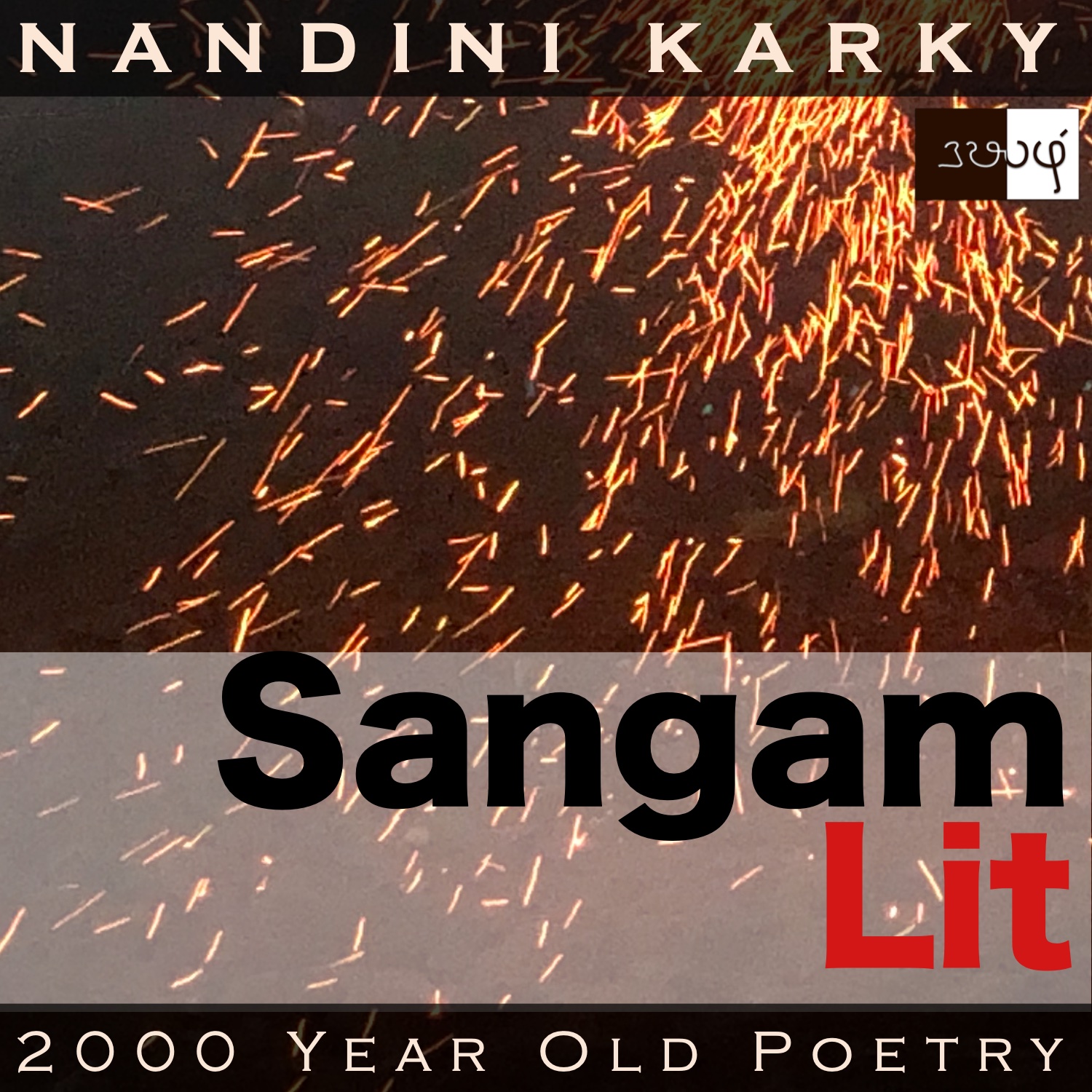Podcast: Play in new window | Download
Subscribe: Apple Podcasts | Spotify | Amazon Music | Android | iHeartRadio | TuneIn | RSS | More

In this episode, we perceive a philosophical interpretation for the presence of anger, as depicted in Sangam Literary work, Kurunthogai 93, penned by Alloor Nanmullaiyaar. Set in the farmlands of ‘Marutham’, the verse speaks in the voice of the lady to her confidante, refusing her friend’s request to reconcile her with the man.
நல் நலம் தொலைய, நலம் மிகச் சாஅய்,
இன் உயிர் கழியினும் உரையல்; அவர் நமக்கு
அன்னையும் அத்தனும் அல்லரோ?
புலவி அஃது எவனோ, அன்பிலங்கடையே?
Pure abstraction echoes from every line of the verse. In the opening words ‘நல் நலம் தொலைய’ meaning ‘fine feminine beauty vanishing away’, we glimpse at a lady’s heart in angst. Thereafter, ‘நலம் மிகச் சாஅய்’ talks about ‘health deteriorating’ adding further to the distress of the lady. In a progression, these tragic outcomes reach a peak in ‘இன் உயிர் கழியினும்’ meaning ‘even if sweet life were to end’. There’s talk of ‘father and mother’ in ‘அன்னையும் அத்தனும்’. Ending with ‘அன்பிலங்கடையே’ meaning ‘where there is no love’, the verse invites us to understand this tale of heartbreak.
Why is the lady’s health in shambles? The context reveals that the man and lady were leading a married life when the man took to keeping the company of courtesans. Soon the man realises the error in his ways and intends to return to the lady. To achieve this, he seeks out the confidante’s help. Taking pity on him, the confidante speaks on his behalf to the lady. To the confidante, the lady says, “Even if my feminine beauty is to fade away, even if my health were to be in ruins, even if this sweet life is to end, do not speak so! Isn’t he like a mother and father to me? Why should there be anger when there is no love?” With these words, the lady conveys to the confidante that she sees no point in accepting the man in these circumstances.
Time to explore the nuances! The lady starts by talking about all possible negative events that may befall her, mentioning first about her outer beauty being lost, after which she goes inwards and talks about her health fading away, and then, moves towards the final step of her very life being lost. Saying that even if all these events were to happen to her, the lady instructs her confidante not to repeat the words she has spoken. From the context, we understand that these words are words spoken by the confidante in support of the man. Looking pointedly at her friend, the lady says the man is like a mother and father to her. After making that statement, which may sound like holding the man in high esteem to our ears, the lady concludes by saying, what’s the point of sulking and being angry at someone who has no love!
A mother and father he is, to her, but there’s no love in him, is it? Quite the contradiction, isn’t it? But, if we can pause and unravel the lady’s heart, we can understand what the lady means is, the man simply seems to be acting with the duty and responsibility that a mother and father have towards their child, and not with romantic love towards her. For if he had that, would he have strayed to those courtesans? And then, she adds that deeply philosophical question asking her friend what is the point of getting angry at someone who has no love to understand that anger. Within a few lines of abstractions, the verse paints a unique portrait of anger by sketching its relation to love.




Share your thoughts...